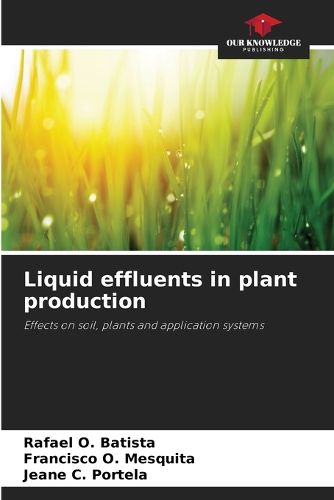Liquid effluents in plant production
Rafael O Batista, Francisco O Mesquita, Jeane C Portela

Liquid effluents in plant production
Rafael O Batista, Francisco O Mesquita, Jeane C Portela
In recent decades, there has been a very promising increase in the management and use of wastewater in agriculture, due to the following factors: it constitutes a water recycling practice; a nutrient recycling practice, providing savings in inputs (fertilisers); it minimises the discharge of sewage into natural watercourses, thus preventing pollution, contamination and eutrophication; it favours soil conservation and the recovery of degraded areas; the high cost of treatment systems, which are necessary for discharging effluents into receiving bodies within the limits set by environmental legislation, and recognition by water resource management bodies of the value of the activity. The use of wastewater in agriculture is an alternative for controlling pollution of the water-soil-atmosphere system, providing water, essential nutrient sources for various crops and consequently increasing agricultural production. However, in order for this to become a viable practice, effluent treatment, application and management techniques need to be perfected.
This item is not currently in-stock. It can be ordered online and is expected to ship in approx 2 weeks
Our stock data is updated periodically, and availability may change throughout the day for in-demand items. Please call the relevant shop for the most current stock information. Prices are subject to change without notice.
Sign in or become a Readings Member to add this title to a wishlist.


